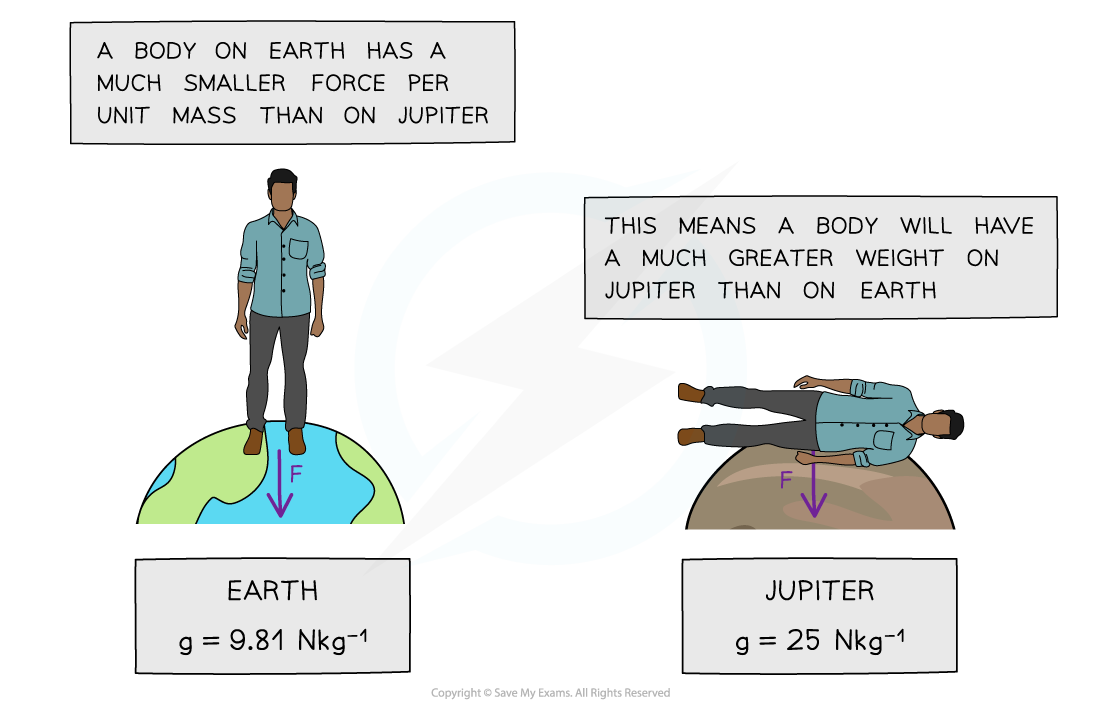Gravity & Weight (Edexcel GCSE Physics) : Revision Note
Did this video help you?
Gravity on Different Planets
The strength of gravity on different planets after an object's weight on that planet
Weight is defined as:
The force acting on an object due to gravitational attraction
Planets have strong gravitational fields
Hence, they attract nearby masses with a strong gravitational force
Because of weight:
Objects stay firmly on the ground
Objects will always fall to the ground
Satellites are kept in orbit

Objects are attracted towards the centre of the Earth due to its gravitational field strength
Both the weight of any body and the value of the gravitational field strength g differs between the surface of the Earth and the surface of other bodies in space, including the Moon because of the planet or moon's mass
The greater the mass of the planet then the greater its gravitational field strength
A higher gravitational field strength means a larger attractive force towards the centre of that planet or moon
The gravitational field strength (g) on the Earth is approximately 10 N/kg
The gravitational field strength on the surface of the Moon is less than on the Earth
This means it would be easier to lift a mass on the surface of the Moon than on the Earth
The gravitational field strength on the surface of the gas giants (eg. Jupiter and Saturn) is more than on the Earth
This means it would be harder to lift a mass on the gas giants than on the Earth

Value for g on the different objects in the Solar System
On such planets such as Jupiter, an object’s mass remains the same at all points in space
However, their weight will be a lot greater meaning for example, a human will be unable to fully stand up

A person’s weight on Jupiter would be so large a human would be unable to fully stand up
Examiner Tips and Tricks
You do not need to remember the value of g on different planets for your exam, the value of g for Earth will be given in the exam question.

You've read 0 of your 5 free revision notes this week
Sign up now. It’s free!
Did this page help you?
